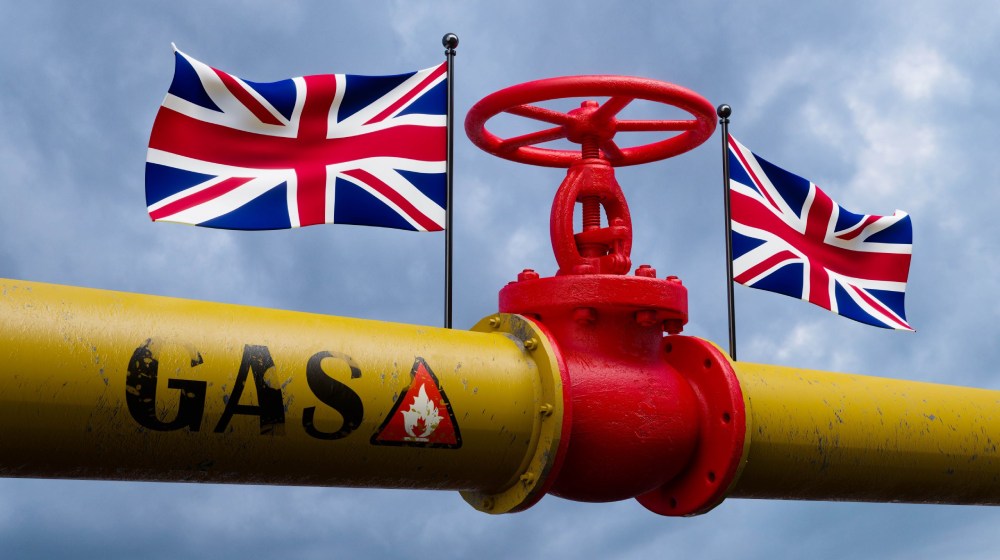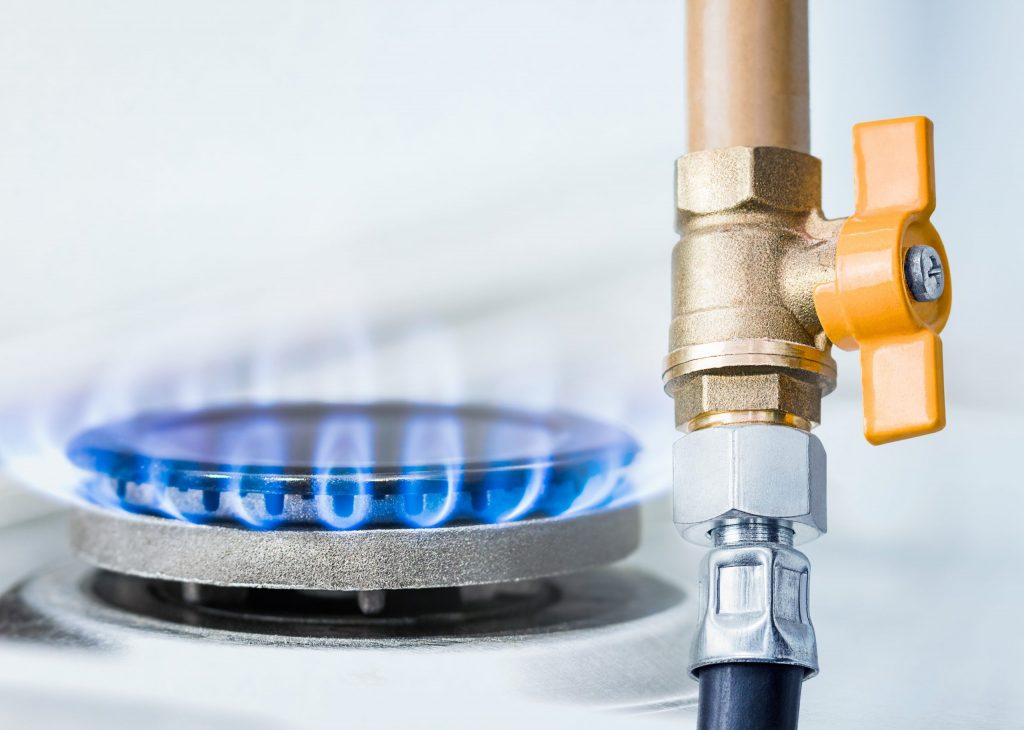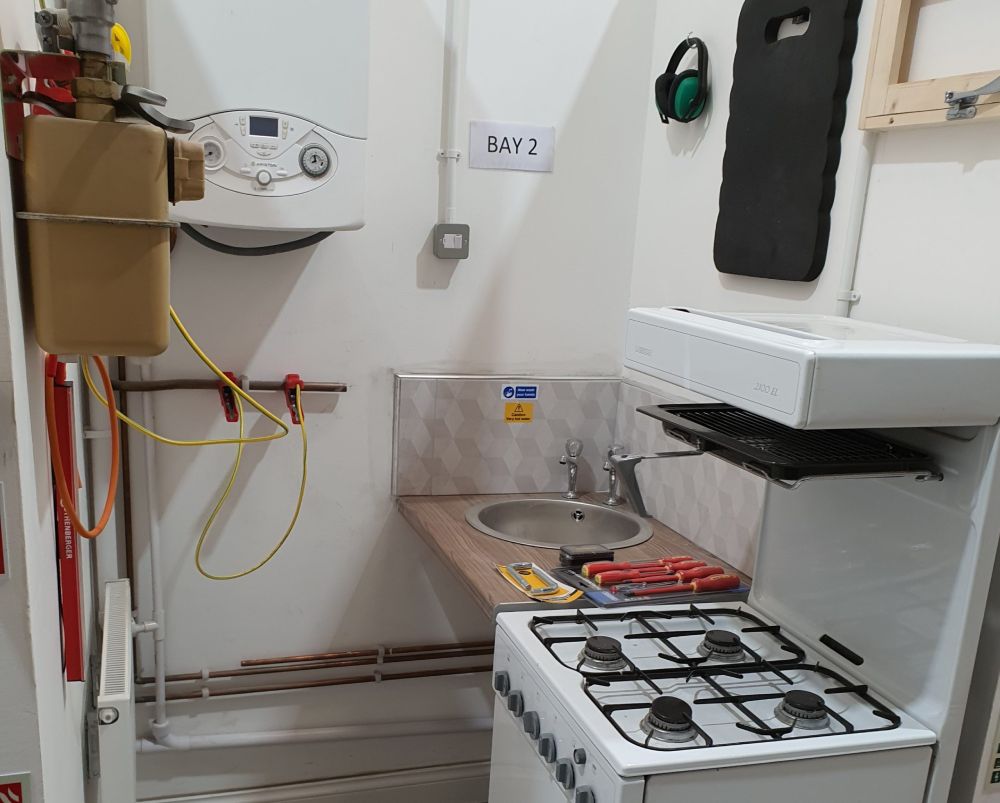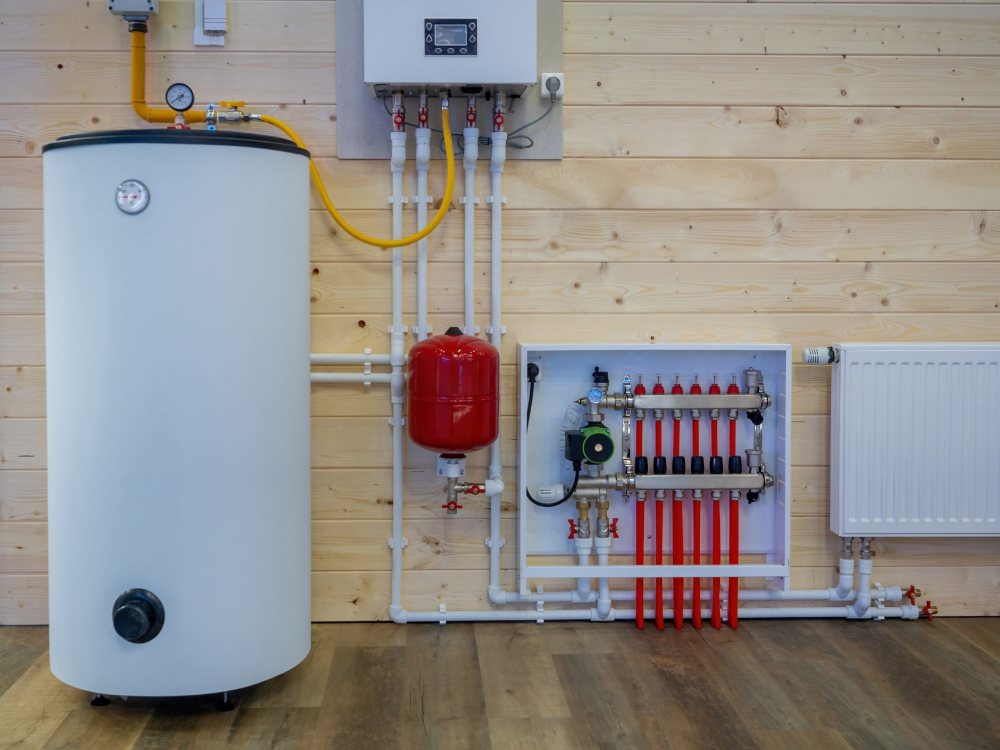How to Become a Gas Engineer in 2025
Fancy yourself as the UK’s next best gas engineer? You’ve come to the right place. We’ve put together this complete guide on how to become a gas engineer in 2025, featuring everything you need to know to get started on the road to taking up a fulfilling and rewarding new career.
We’re going to look at the various steps involved in becoming a gas engineer, how you can take them and the skills you need to have to get started. So, let’s get stuck in – your new career path awaits!
Table of contents:
Steps to Become A Gas Engineer
Skills Needed to Become a Gas Engineer
Why Become A Gas Engineer in 2025?
Are There Any Limitations To Becoming A Gas Engineer?
Kickstart Your Career as a Gas Engineer Today
How to Be a Gas Engineer – FAQs

What is a Gas Engineer?
Before we delve into how you become a gas engineer, what’s involved in the job? Gas engineers are responsible for the installation and maintenance of systems and appliances that operate using natural gas, such as boilers.
Because of the potentially hazardous nature of this flammable fuel, gas engineers are a highly specialised, well-respected profession. They need a lot of training and even once qualified, they must stay up to date with the latest regulations and techniques to make sure they’re safe and operating within the law. They also conduct routine diagnostics, repairs and emergency services for cookers, water heaters and other gas appliances.
Steps to Become a Gas Engineer
People become gas engineers by following a number of steps, including completing an apprenticeship or training course, building a portfolio, undertaking accredited certification scheme (ACS) training, submitting to the Gas Safe Register and finally, finding work either as a sole trader or with an employer.
We’ll go into more detail about each step below, so stick with us as we take you through the path to becoming a gas engineer.
01 – Find and Complete a Training Course
The first step on the road to your new career as a gas engineer is to complete a training course. This will equip you with most of the theoretical knowledge and practical skills you need. An alternative route is to complete an apprenticeship.
At Midlands Gas and Electrical Training Centre, we provide comprehensive gas engineer training that blends practice with real-world, on-the-job experience in the company of an experienced engineer. Over 24 weeks, you’ll complete six weeks of training at our centre, before heading out with one of our qualified trainers to perform a minimum of four boiler installations and four boiler services over the remaining 18 weeks. Once your training is completed, you’ll be issued with a Gas Safe qualification and able to register for your initial ACS Assessment.
02 – Build Your Portfolio
Our next stage in how to be a gas engineer is to build a portfolio of work. This will showcase your workmanship to potential employers and can help you when it comes to the next step which is registering for ACS training.
In the process of completing gas engineer training with Midlands Gas and Electrical Training Centre, we’ll help you build a portfolio of work through practical, real-world installation and maintenance projects.
03 – Finish ACS Training
Once you’ve completed your apprenticeship or training and built a portfolio of work, you can register for an ACS training course. There are six different ACS course types to choose from including domestic natural gas, commercial heating, commercial catering, commercial laundry, emergency service provider and metering and liquid petroleum gas.
Each course will lead to a different career path, and all are overseen by the United Kingdom Accreditation Service (UKAS). All courses will involve multiple-choice theory, written theory and practical assessments, and will need renewing once every five years.
04 – Sign Up to the Gas Safe Register
Your penultimate hurdle in how to become a gas engineer is to sign up to the Gas Safe Register, which you can do within two weeks of completing your ACS training. You need to be Gas Safe registered to legally work on gas appliances and systems in the UK, Isle of Man, Guernsey and Jersey.
The scheme is operated by the Health and Safety Executive (HSE) to protect the general public from unscrupulous engineers. Registration costs £480 plus VAT, and once registered, you’ll be free to find your first job as a gas engineer!
05 – Find Your First Job!
Well done! You’ve made it through all your training and signed up to the Gas Safe register, you’re now fully qualified and legally allowed to practise as a gas engineer in the UK.
The final step is to find work. You can decide to go it alone as a sole trader and buy your own tools and van to work for yourself or apply for a job with a business which employs gas engineers such as an energy company.
06 – Upskill With Industry Qualifications
Expand your skill set, knowledge and accreditations with any of our gas and electrical training courses. This includes Boiler Fault-Finding Course, Unvented Hot Water Course, Water Regulation Certification or LPG Course.
Skills Needed to Become a Gas Engineer
When you train to be a gas engineer, there’s a multitude of skills that’ll likely be incredibly helpful to possess or hone, including customer service, time management, maths, technical skills and problem-solving.
Let’s run through these skills and why they might be handy:
Customer Service
You might not have considered this one, but customer service is one of the most important skills you can possess. When you go out to conduct repairs, you’ll be working in peoples’ homes and handling situations where people are potentially frustrated and stressed.
You’ll need to be able to calmly put peoples’ minds at ease, be respectful of their homes and explain the work you’re doing and offer any advice to help prevent issues from recurring. These positive interactions can lead to word-of-mouth recommendations, which is one of the best ways to grow your customer base.
Time Management
Whether you work for yourself or a company, you’ll have a schedule of appointments to keep. One of the key skills needed to become a gas engineer is to be able to properly manage your time.
Running behind for booked appointments can leave customers frustrated and damage your reputation as well as that of your employer.
Maths
When you become a gas engineer, you’ll need to have a basic understanding of key principles of maths, as you’ll have to take measurements, identify patterns and spot issues using mathematical deductions.
While your training or apprenticeship will equip you with many of the skills you need, it’s helpful to have some sort of grounding in maths before you start, as it’ll make your training and your work much easier.
Technical Skills
It’s hugely helpful to have some form of basic technical skills and experience using tools or working with your hands when training to be a gas engineer; even the most basic experience will give you a leg up.
As you go through your training, you’ll develop more complex skills and a portfolio of work that showcases your technical competencies.
Problem-Solving
In your day-to-day work as a gas engineer, you’ll be constantly required to identify and solve problems. Your ability to think creatively and adapt to new and changing situations will be tested every day.
Problem solving skills will be vital, and if you can demonstrate these before you even begin training, you’ll be in good stead for the rest of your career.
Initiative and Leadership
Demonstrating leadership traits and initiative is highly valuable for those who want to learn how to become a gas engineer. This can entail everything from regular hands-on practice to participating in active demonstrations for others to learn. Small, consistent habits such as assisting colleagues are one way to take initiative and lead by example.
Why Become a Gas Engineer in 2025?
Gas engineering is a stable career path that imparts valuable skills, training and versatility to install and repair boilers and other gas-powered systems. Even with the shift to greener energy, the same skills can carry over to installing renewable heating solutions. This not only makes it a future-proof career but also one where your skills can adapt and expand into other areas of the heating industry. The average salary, close to £38,000, is generous and can increase over time with experience and additional accreditations.
There is also a high demand for work, and with many gas engineers set to retire over the next few years, the need for reliable gas engineers isn’t going anywhere. If you’re interested in discovering more reasons you should become a gas engineer, read our blog post on ‘Why the UK needs more gas engineers’.
Are There Any Limitations to Becoming a Gas Engineer?
Often, existing commitments can put people off training or upskilling. However, you can train to become a gas engineer at any time with flexible weekday, evening and weekend courses available. We also offer bespoke courses to help target any areas of improvement. Over the span of six months, you can receive the safety training and certification required to start your career. Throughout this time, it’ll be important to gain as much experience as possible and build a strong portfolio to showcase your competencies.
Kickstart Your Career as a Gas Engineer Today
Now we’ve run through how to become a gas engineer, what are you waiting for? Sign up for a gas engineer training course with Midlands Gas and Electrical Training Centre today and dive into an exciting, rewarding new career.
Just reach out to our team to book your place using our contact form, by calling 0121 557 7009 or by emailing us at enquiries@mgetraining.co.uk.

How to Be a Gas Engineer – FAQs
How Much Do Gas Engineers Make?
According to Glassdoor, the average salary for a gas engineer in the UK in 2024 is £37,139, with additional compensation ranging from £987 per year to £5,074.
How Long Does It Take To Become A Gas Engineer?
When you train to be a gas engineer, you’ll have to undertake a minimum of six months training before you can be issued with your Gas Safe qualification, but your training time will vary depending on the entry route you take as well as the quality of the work you demonstrate during your training.
How Much Does It Cost To Become A Gas Engineer?
For comprehensive training with Midlands Gas and Electrical Training Centre, prices start at just £4,500 and entry to the Gas Safe Register will cost just under £500, putting the total cost at around £5,000. With average salaries for gas engineers at just shy of £40,000, you could potentially have the cost of your training paid off in just a few months.
How To Become A Gas Engineer With No Experience?
Becoming a gas engineer with no experience is easy. Just register for a gas engineer training course with Midlands Gas and Electrical Training Centre. We’ll take you from zero experience to fully qualified using a blend of practical training, classroom learning and on-the-job practice.
How To Become A British Gas Engineer?
While you can choose to go down the apprenticeship route, it can take years to complete. The fastest way to become a British Gas engineer is to complete a gas engineer training course like the ones we offer here at Midlands Gas and Electrical Training Centre and then apply for a gas engineer role with British Gas.
How To Become A Commercial Gas Engineer?
If you’re wondering how to become a gas engineer of any kind, the fastest route is to register for a gas engineer training course with Midlands Gas and Electrical Training Centre. Within six months, you could be a fully qualified, Gas Safe-registered engineer with a portfolio of work ready to dive into an exciting new career.
Are There Any Progression Opportunities?
When you gain experience, build your portfolio and upskill your courses, there are many available progression opportunities such as specialist roles in different commercial sectors, learning to install renewable solutions and supervisor roles. Gas engineering is a career path that offers flexibility and growth opportunities to start your own business or work as part of a larger company.





